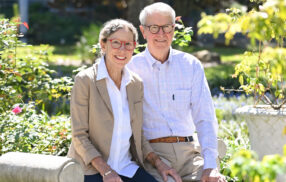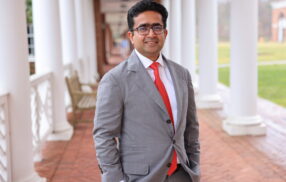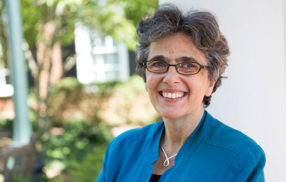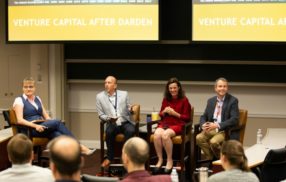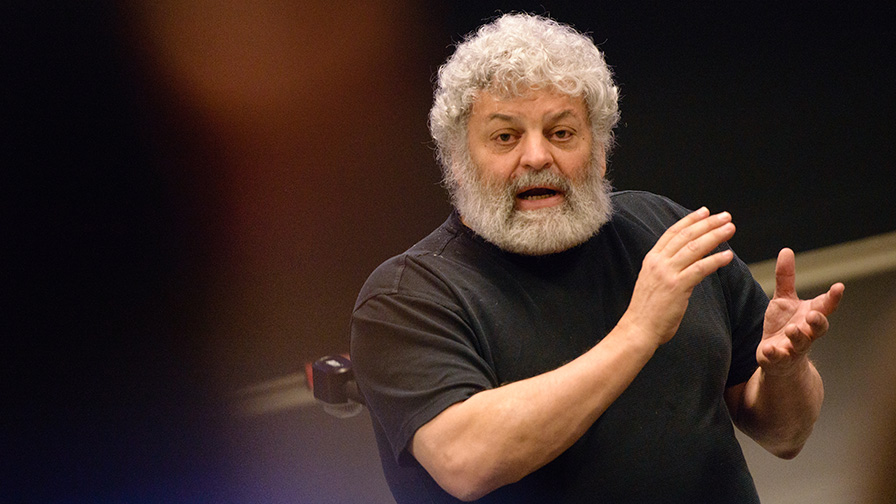
UVA Darden Professor Charts Path Toward Better Engagement With Technology and Ethics
By Dave Hendrick
In the the MIT Sloan Management Review, University of Virginia Darden School of Business Professor Ed Freeman considers the difficulty in fostering meaningful civic engagement around a host of potentially troubling issues stemming from the rapid evolution of technology.
In an article co-written with University of Georgia student Seth Lashley, Freeman details the barriers to engaging in the conversations members of society should be having, including a reluctance to stray from comfort zones and fundamental misunderstandings about ethics and even business itself, among other impediments.
Things are likely to become more demanding as our technology continues to evolve at an explosive level. At the same time, the civic processes that should encourage innovative solutions to new problems appear to be broken.
The fusion of business, technology, and ethics is, in essence, unfolding at a rate that appears to outstrip our ability as citizens to have meaningful and careful conversations about the effects of our actions on others. What we need is a commitment to honestly talk about the challenges technology now poses.
The authors also propose four steps to move past existing roadblocks.
- We need to include children in these conversations. We need to be talking more explicitly about the nature of business, technology, and ethics, and we need to begin those conversations in our schools at the K-12 level. Progress on this point can help ensure that our children have a much better understanding of these forces that will dramatically affect their lives.
- We need mandatory courses in engineering and business schools about these challenges. Grad students need to be analyzing how business, technology, and ethics are connected through the examination of real cases and issues.
- We need leading-edge companies to take the lead. Silicon Valley companies need to put ethics at the center of what they are doing, and they need to connect it to both their gee-whiz technologies and their business models.
- We need innovative public policy processes that have sophistication in technology, business, and ethics. Society needs a creative revolution of ideas that gives us new models of how business, technology, and ethics can be connected.
Read the full article on the web site of the MIT Sloan Management Review website and join Freeman and Professor Bobby Parmar in San Francisco on 17 July for a conversation on why responsible leadership in business and technology matters.
The University of Virginia Darden School of Business prepares responsible global leaders through unparalleled transformational learning experiences. Darden’s graduate degree programs (MBA, MSBA and Ph.D.) and Executive Education & Lifelong Learning programs offered by the Darden School Foundation set the stage for a lifetime of career advancement and impact. Darden’s top-ranked faculty, renowned for teaching excellence, inspires and shapes modern business leadership worldwide through research, thought leadership and business publishing. Darden has Grounds in Charlottesville, Virginia, and the Washington, D.C., area and a global community that includes 18,000 alumni in 90 countries. Darden was established in 1955 at the University of Virginia, a top public university founded by Thomas Jefferson in 1819 in Charlottesville, Virginia.
Press Contact
Molly Mitchell
Associate Director of Content Marketing and Social Media
Darden School of Business
University of Virginia
MitchellM@darden.virginia.edu




